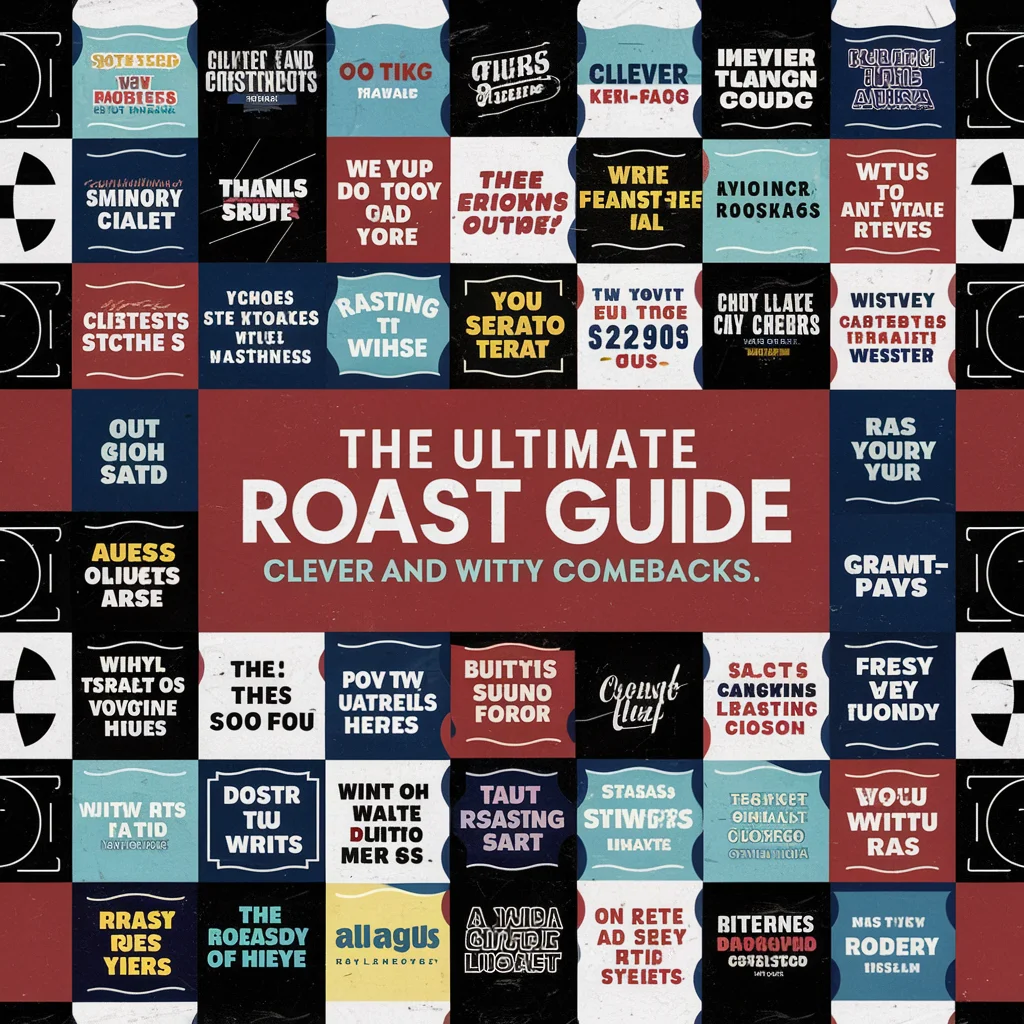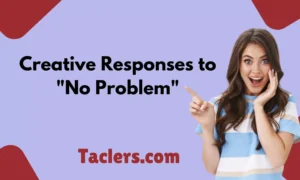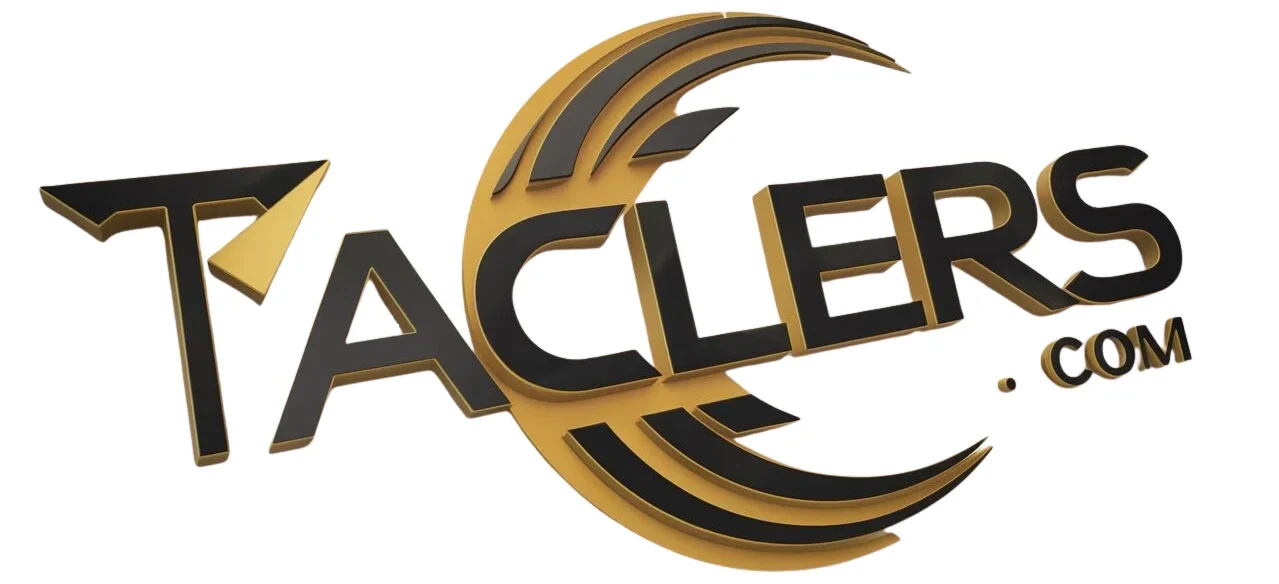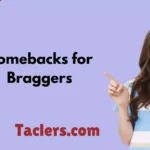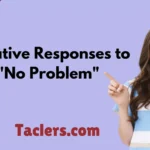Roasting a friend or acquaintance is a time-honored tradition in many cultures, often used to lighten the mood and share a laugh. When done right, a roast can be a playful way to poke fun at someone’s quirks and idiosyncrasies. This guide will provide a comprehensive overview of clever and witty comebacks across various categories, including observational roasts, exaggeration roasts, pop culture references, self-deprecating humor, and backhanded compliments. Let’s dive into each category and explore how to craft the perfect roast.
Observational Roasts
Observational roasts are based on personal traits and habits that are unique to the individual. They highlight quirks in a humorous way, often bringing out the charm in the subject’s peculiarities.
Fashion Sense
“Your outfit is so bright, I need sunglasses just to look at you. Are you planning to blind the competition?”
Fashion choices can often be a source of great humor. This roast plays on the idea that the person’s clothing is so bold or flashy that it’s almost blinding. It’s a playful jab that can be taken in good humor, especially if the person is known for their eccentric style.
Examples:
- Bright Colors: When someone wears unusually bright colors or patterns, it can be joked about as needing special eyewear.
- Over-the-Top Accessories: Large, flashy accessories can be humorously described as needing a “warning label.”
Quirky Habits
“You blink so often, I’m starting to think you’re trying to send Morse code. What’s the message?”
Everyone has quirky habits that make them unique. This roast focuses on an odd but harmless behavior, like excessive blinking. It’s a lighthearted way to point out a peculiar habit without causing offense.
Examples
- Frequent Blinking: Commenting on someone’s frequent blinking or twitching can be a funny way to highlight their quirkiness.
- Unusual Gestures: Any repetitive or unique gesture can serve as a basis for a roast.
Slight Cluelessness
“You’re so directionally challenged, I’m surprised you don’t get lost in your own neighborhood.”
This roast targets a person’s lack of navigational skills. It exaggerates their tendency to get lost or struggle with directions in a humorous way:
Examples:
- Getting Lost Easily: Making light of their inability to find their way around can be both funny and relatable.
- Misunderstanding Simple Directions: Joking about their confusion with straightforward instructions can be amusing.
Love for the Odd
“You’re so obsessed with [weird hobby], I’m guessing your dreams are narrated by [hobby-related figure].”
When someone has an unusual hobby, it can be a great source of humor. This roast emphasizes their passion for something out of the ordinary and imagines it extending into their dreams.
Examples:
- Strange Hobbies: Whether it’s collecting unusual items or participating in obscure activities, these can be playfully exaggerated.
- Dreams Related to Hobby: Imagining how their hobby influences their dreams adds a humorous twist.
Unique Hairstyles
“Your hair looks like it was styled by a tornado. Is that a new trend I missed?”
Hairstyles are a frequent subject of jokes. This roast exaggerates the appearance of someone’s hair in a way that’s meant to be funny rather than hurtful.
Examples:
- Wild or Messy Hair: Comparing a messy hairstyle to a natural disaster can be a playful way to comment on their look.
- Overly Styled Hair: Joking about an overly styled hairdo being a new trend can also be amusing.
Exaggeration Roasts
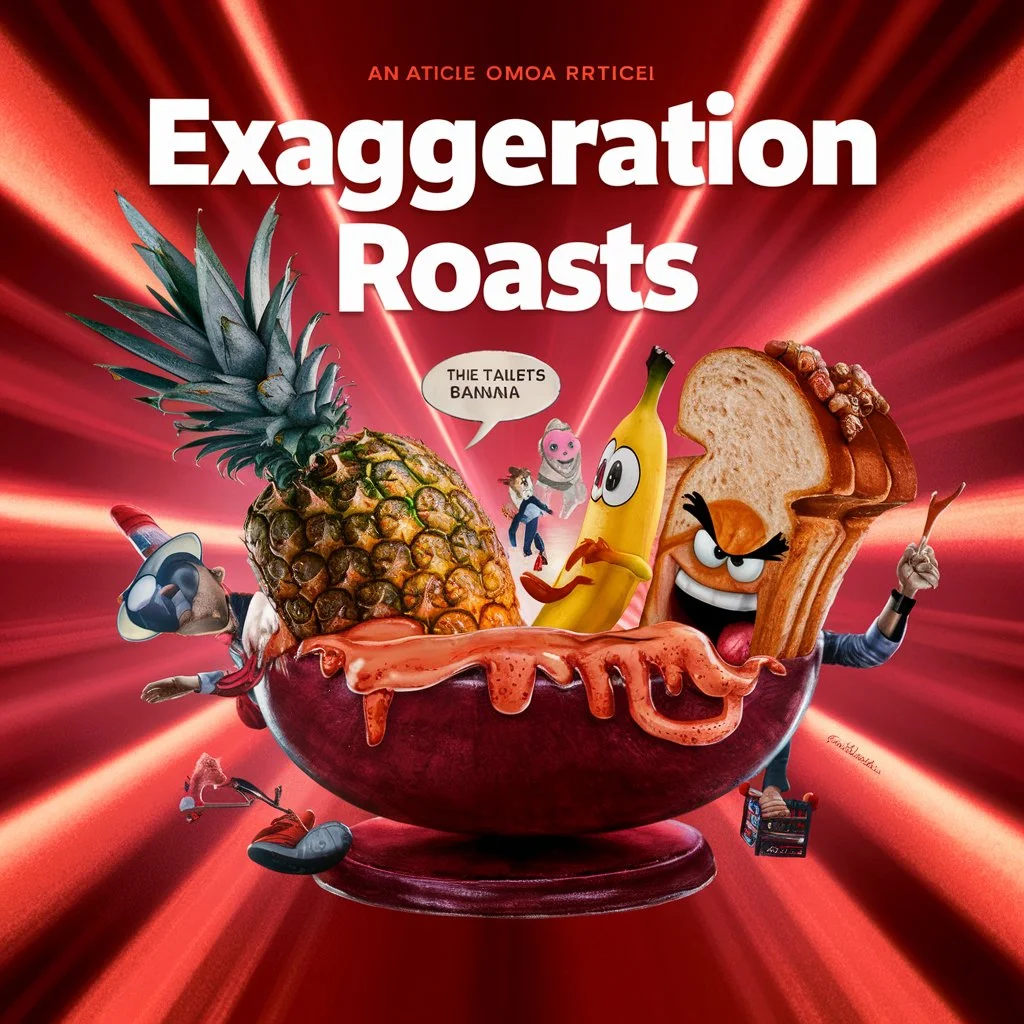
Exaggeration roasts take a person’s traits or behaviors and blow them out of proportion. This approach can be highly effective in creating a humorous effect.
On Their Cooking Skills
“You burn water. Is that a superpower or just an unfortunate talent?”
When someone’s cooking skills are less than stellar, exaggerating their failures can be hilarious. This roast takes a common cooking mishap and turns it into an absurd exaggeration.
Examples:
- Burnt Food: Describing their inability to cook as burning water or other basic ingredients can be very funny.
- Kitchen Disasters: Amplifying minor kitchen mishaps into major catastrophes adds to the humor.
On Their Forgetfulness
“You’re so forgetful, I wouldn’t be surprised if you forgot your own name by lunchtime.”
Forgetfulness can be a common trait, and exaggerating it can turn it into a comedic element. This roast makes light of someone’s tendency to forget important details.
Examples:
- Forgetting Daily Tasks: Highlighting their forgetfulness with exaggerated scenarios can be very entertaining.
- Misplacing Items: Making fun of their habit of losing things in an exaggerated manner adds humor.
On Their Lack of Athleticism
“You’re so clumsy, you could trip over a line on the floor. I’ve seen plants with better coordination.”
This roast focuses on a person’s lack of physical coordination. By comparing their clumsiness to something as immobile as a plant, the humor becomes more pronounced.
Examples:
- Tripping Over Objects: Exaggerating their clumsiness with ridiculous scenarios can be quite funny.
- Physical Mishaps: Making light of their struggles with sports or physical activities adds to the humor.
On Their Tech Struggles
“You’re so tech-inept, you could break a calculator just by looking at it. Did you invent the blue screen of death?”
Technological struggles are a common source of humor. This roast exaggerates their difficulties with tech, turning them into an absurd superpower.
Examples:
- Breaking Gadgets: Describing their tech mishaps as breaking devices with mere looks can be a funny exaggeration.
- Software Failures: Making fun of their inability to handle basic tech problems adds to the comedic effect.
On Their Questionable Decisions
“Your decision-making skills are so poor, I’d trust a magic 8-ball more than your judgment.”
This roast exaggerates someone’s poor decision-making skills. By comparing their judgment to a random decision-making tool, it highlights their lack of good choices humorously.
Examples:
- Bad Choices: Amplifying their poor decisions into absurd scenarios can be very funny.
- Decision-Making Tools: Comparing their choices to unreliable tools like a magic 8-ball adds a humorous twist.
On Their Questionable Taste
“You like that band? Their music is like a symphony of cats fighting over a tuna fish.”
Questionable taste in music or entertainment can be a great roast subject. By comparing their taste to something ridiculous, it emphasizes their poor choices humorously.
Examples:
- Music Preferences: Exaggerating their taste in music with absurd analogies can be very funny.
- Entertainment Choices: Making fun of their taste in movies or books with humorous comparisons adds to the roast.
On Their Love of Naps
“You’re so lazy, if napping were an Olympic sport, you’d win gold by default. And still snooze through the ceremony.”
A love for naps can be exaggerated into a humorous competition. This roast plays on the idea of their napping being so extreme that they would excel in a made-up competition.
Examples:
- Excessive Napping: Describing their napping habits as an Olympic sport with humorous results can be entertaining.
- Sleep Competitions: Imagining them winning awards for sleeping adds to the comedy.
Pop Culture Roasts
Pop culture references can make roasts more relatable and engaging. These roasts use well-known characters and trends to create humor.
The Perpetually Unlucky
“You’ve got the same luck as Charlie Brown. Every time you try, it’s like the football gets pulled away.”
Referencing a character like Charlie Brown—who is known for his bad luck—can add a relatable and humorous touch to a roast.
Examples:
- Charlie Brown: Using this character to describe someone’s misfortune makes the roast more recognizable.
- Unlucky Situations: Comparing their constant bad luck to famous unlucky characters adds humor.
The Drama Queen/King
“You’re more dramatic than a soap opera star. I’m waiting for you to break into a monologue at any moment.”
Exaggerating someone’s dramatic behavior with a comparison to soap opera stars can be both relatable and funny.
Examples:
- Over-The-Top Reactions: Comparing their reactions to those of soap opera characters highlights their dramatic tendencies.
- Monologue Moments: Imagining them bursting into dramatic speeches adds to the comedy.
The Fashion Disaster Zone
“Your style is like Ross Geller’s from Friends—frozen in a fashion disaster from the past.”
Using a well-known character like Ross Geller—who is known for his questionable fashion choices—can make a roast about someone’s style more humorous and relatable.
Examples:
- Fashion Choices: Comparing their style to Ross Geller’s adds a pop culture twist.
- Fashion Disasters: Highlighting their fashion faux pas with famous examples can be entertaining.
The Easily Flustered
“You’re like [panicky cartoon character]. One little thing and it’s like the sky is falling. Can you calm down for a second?”
Referring to a panicky cartoon character helps to exaggerate someone’s tendency to get flustered or anxious in a humorous way.
Examples:
- Panicky Characters: Comparing their flustered reactions to those of well-known cartoon characters adds humor.
- Overreactions: Describing their anxiety with exaggerated scenarios makes the roast more entertaining.
The Always-on-Trend Friend
“You jump on trends faster than a Kardashian changes outfits. Are you a walking trend cycle?”
Using a reference to the Kardashians, known for their ever-changing trends, highlights someone’s tendency to follow trends with a humorous comparison.
Examples:
- Trend-Jumping: Comparing their trend-following behavior to a Kardashian’s rapid outfit changes adds to the comedy.
- Fashion Trends: Using pop culture references to describe their trendiness makes the roast more engaging.
Self-Deprecating Roasts
Self-deprecating humor can be an effective way to roast oneself while keeping the mood light. These roasts use personal flaws and quirks to create humor.
On Social Cues
“I’m not saying I’m bad at social cues, but if flirting were a sport, I’d get a medal for most awkward attempts.”
Self-deprecating humor about social skills highlights personal shortcomings in a light-hearted way. This roast is about acknowledging and making fun of one’s own social awkwardness.
Examples:
- Awkward Flirting: Making fun of one’s own flirting skills with exaggerated scenarios.
- Social Mishaps: Highlighting personal social gaffes in a humorous manner.
On Survival Skills
“My survival skills are so poor, even a houseplant could outlive me. I might need a reminder to water myself.”
Using a houseplant analogy to describe poor survival skills adds a humorous touch to self-deprecation. This roast emphasizes personal shortcomings with a funny comparison.
Examples:
- Low Survival Skills: Comparing oneself to a houseplant for survival skills makes the roast entertaining.
- Daily Reminders: Joking about needing reminders for basic tasks adds to the humor.
On Perfectionism and Procrastination
“I’m what happens when a perfectionist meets a procrastinator. It’s a constant cycle of planned disappointments.”
This roast highlights the struggle between perfectionism and procrastination. It uses self-deprecation to humorously describe the frustration of dealing with these traits.
Examples:
- Perfectionism: Making fun of the unrealistic standards one sets for themselves.
- Procrastination: Combining procrastination with perfectionism to create a humorous scenario.
On Cooking Skills
“My cooking is so bad, even the smoke alarm cheers me on. It’s like an oven disaster every time.”
Describing one’s cooking skills with self-deprecation adds humor by exaggerating the failures in the kitchen. It creates a funny image of constant kitchen disasters.
Examples:
- Kitchen Failures: Making light of cooking mishaps with humorous exaggerations.
- Smoke Alarms: Using the smoke alarm as a humorous indicator of cooking failures.
On Navigation
“I’m like a GPS with a broken compass. I’ll get you there eventually, but expect a few detours and wrong turns.”
Using a GPS analogy to describe poor navigation skills adds humor by exaggerating the difficulties faced while finding directions.
Examples:
- Navigation Problems: Making fun of one’s own navigation issues with humorous comparisons.
- Detours and Wrong Turns: Highlighting navigation struggles with exaggerated scenarios.
Backhanded Compliment Roasts
Backhanded compliments offer praise with a twist of humor. These roasts acknowledge a person’s traits while subtly poking fun at them.
On Surprising Skills
“You’re surprisingly good at [something they usually fail at]. Who knew you had it in you? There’s hope yet!”
Offering a backhanded compliment about surprising skills acknowledges their improvement while humorously highlighting past failures.
Examples:
- Unexpected Talents: Praising unexpected skills with a hint of surprise.
- Past Failures: Comparing current success to previous failures in a light-hearted manner.
On Confidence
“I admire how confident you are, even when you’re clearly out of your depth. It’s a bold approach!”
Complimenting someone’s confidence while acknowledging their lack of skill adds a humorous twist. It highlights their boldness with a hint of criticism.
Examples:
- Overconfidence: Praising confidence while pointing out lack of competence.
- Bold Approaches: Describing their bold actions with a humorous edge.
On Being Interesting
“You’re an interesting person. Not everyone can pull off being that unique.”
Offering a compliment about uniqueness while subtly referencing their oddness provides a humorous touch. It praises their individuality with a twist.
Examples:
- Unique Traits: Complimenting their uniqueness while hinting at their odd behaviors.
- Interesting Personalities: Acknowledging their interesting nature with a humorous perspective.
On Sense of Style
“For someone with no sense of style, you sure are dedicated to your look. It’s a commitment!”
This roast combines style with a backhanded compliment, acknowledging their dedication while humorously criticizing their fashion sense.
Examples:
- Fashion Commitment: Complimenting their commitment to their style while subtly critiquing it.
- Lack of Style: Highlighting their lack of fashion sense in a humorous way.
On Finding Negatives
“I admire your talent for finding the worst in every situation. It’s a special skill, really.”
Praising someone’s ability to find negatives in every situation with a humorous twist highlights their knack for seeing the downside.
Examples:
- Negative Outlook: Complimenting their talent for negativity with a touch of humor.
- Special Skills: Describing their ability to find the worst as a unique skill.

Nicholas Clark is a dynamic writer with a knack for capturing the essence of human reactions. With a background in psychology, he delves deep into the science behind every smile, frown, and gasp. His insightful articles on Taclers.com will leave you pondering the fascinating world of human emotions.
